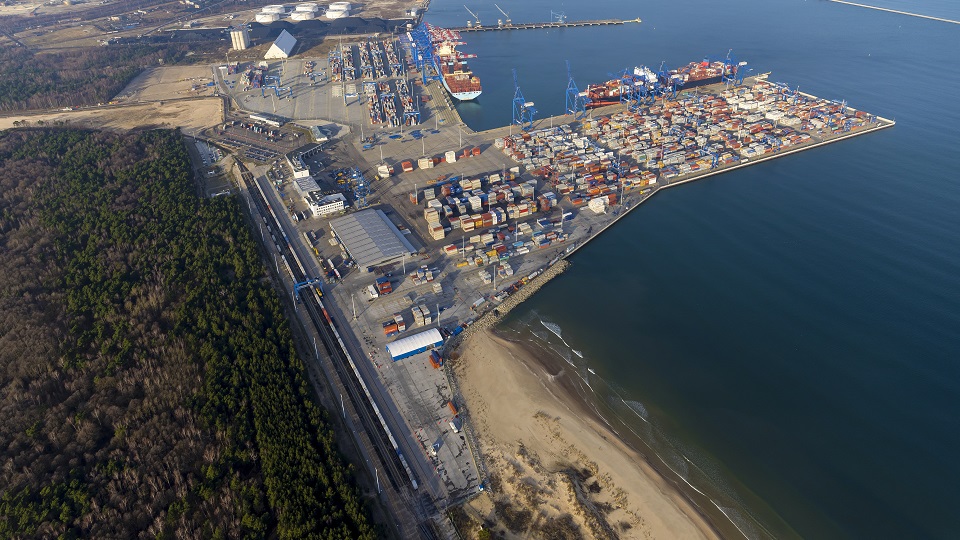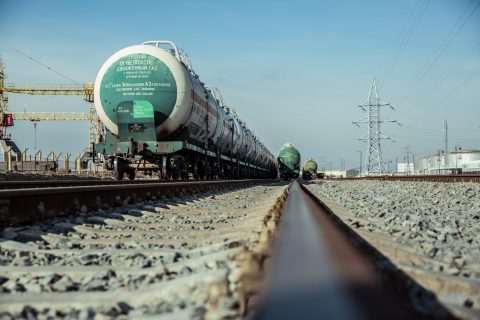From China to Gdańsk port in 12 days by rail

DCT Gdansk, the only deep-water terminal on the Baltic Sea, has inaugurated its first container train service to/from China. It provides a faster connection than ocean shipping between the Chinese city of Xi’an and the Polish seaport: the train makes the journey in just 12 days. The delivery time could be reduced up to 10 days.
On Thursday, 21 November, the first container rail service, branded as Euro China Train, arrived at the port of Gdańsk after the twelve-day trip. The next arrival of this train from China is scheduled for December. Starting from January 2020, the rail link will become regular with a frequency of one departure per week. On the way from China to Poland, the train crosses Kazakhstan, Russia and Belarus: 9-10 days are required for travelling from China to Małaszewicze, and 1-2 days are for the journey from Małaszewicze to the port of Gdańsk.
Northern Gate
On one hand, such a solution may seem strange for the maritime container terminal, which is well-connected with Chinese ports by sea lines. However, the terminal is developing its network of rail freight connections and this service creates new opportunities for logistics companies. With the help of this rail freight service, new multimodal solutions could be offered to the customers in Northern Europe. Due to the shorter delivery time of the rail connection, the port of Gdańsk will be a transshipment base for handling containers to Scandinavian countries or the United Kingdom. Such a multimodal service will be shorter than the direct sea line from China to Sweden or Norway.
“This is an added value for the port, an expanded range of opportunities for customers. It is a proof that sea and land transport can develop and coexist in harmony, strengthening the position of the Port of Gdańsk and DCT terminal as the Northern Gate for the fastest-growing region in Europe”, said Cameron Thorpe, President of the Management Board of DCT Gdansk.
Text continues below the picture

Alternative to Hamburg
At the same time, Łukasz Greinke, President of Gdańsk Port Authority, specified that because of the new rail connection to China, Polands’ largest seaport will strengthen its position as an alternative to Western European ports including Hamburg. “Thanks to this solution, we are able to accelerate the transport of goods from China with up to 5 days. You should also remember the less number of operations per container, the lower the costs. From today, the Port of Gdańsk can offer a faster, cheaper and competitive service compared to currently functioning solutions”, noted Greinke.
Text continues below the picture

The containers from Xi’an to Gdańsk were received at Adampol Małaszewicze intermodal terminal. This facility is owned by Adampol, a Polish logistics company focused on delivering cars and containers from China to Europe or backward for over 20 years. Besides its own terminal in Małaszewicze, Adampol operates two other installations in Poland: one in Gdańsk, another close to Katowice. The company also has representative offices in the United Kingdom, Belgium, Germany, Italy, Czechia and Slovakia.
European Silk Road Summit
Do you want to know more about the New Silk Road and its latest developments? On 26 and 27 November the European Silk Road Summit takes place in Venlo, the Netherlands. At this two-day international event more than 35 speakers and around 250 delegates will share their experiences, expertise and latest news. Registration for the event is still open. The programme and speakers can be found on the website.
Also read:
- Fast growing port of Gdansk wants to double volumes by 2030
- ‘Central Europe needs more direct routes to China’
You just read one of our premium articles free of charge
Want full access? Take advantage of our exclusive offer




